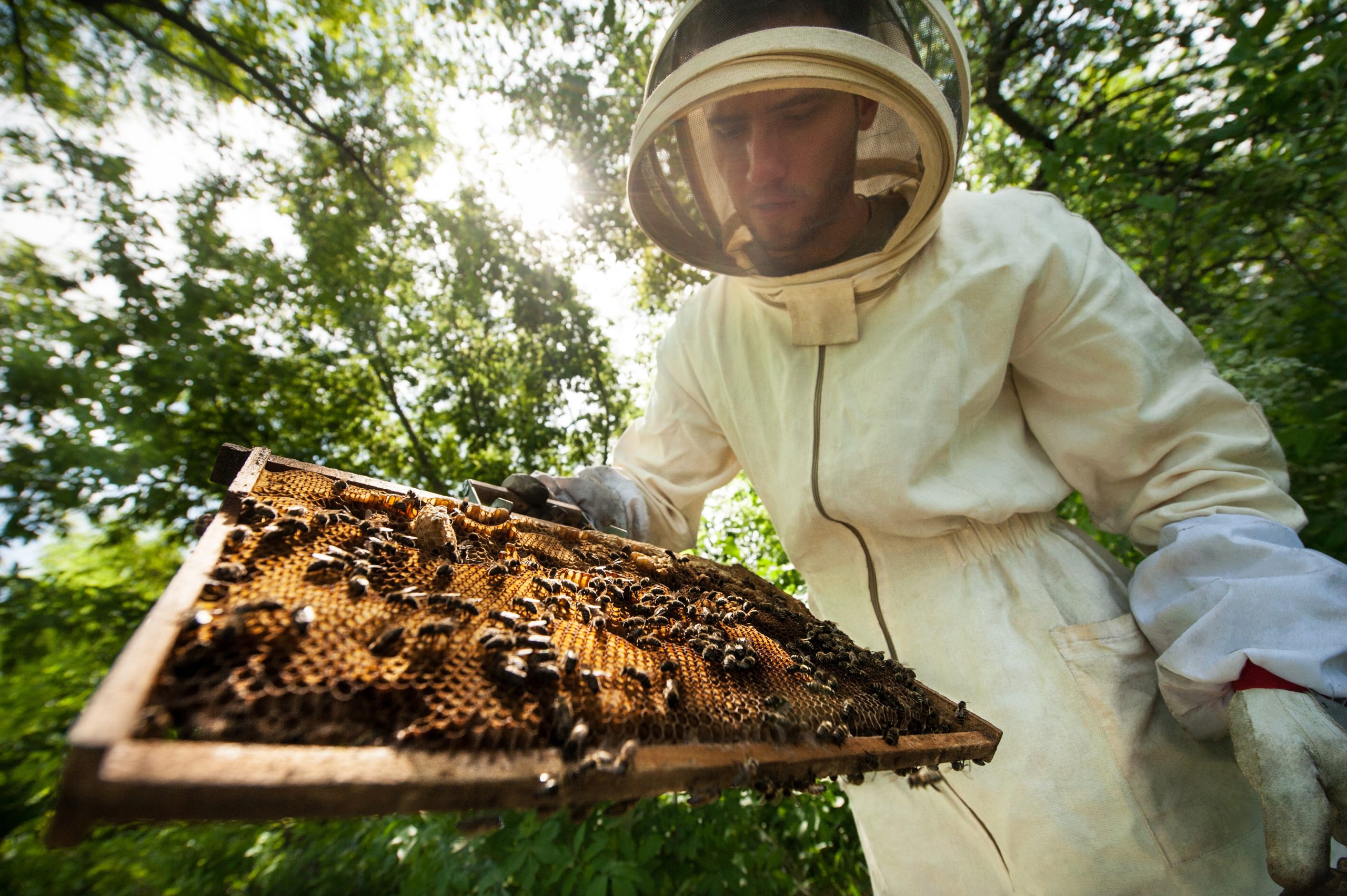Beekeeping: Therapy for Veterans with PTSD
May 08, 2016
It’s no secret that many veterans who come home from war or combat have trouble adjusting back into civilian life, whether because of a sense of foreignness of being thrown back into relative safety after months or years of hypervigilant survival or because something specifically traumatic happened like the loss of brothers and sisters in combat, injury, or anything that can lead to long term post-traumatic stress disorder. With that knowledge, lawmakers are doing what they can to find solutions to help veterans deal with PTSD, and one of those lawmakers, US Senator Shelley Moore Capito, was lucky to discover a program that shows great results helping PTSD-burdened veterans—and that program involves beekeepers in West Virginia.
Capito visited the Geezer Ridge Farm in Hedgesville, WV, home to thousands of honey producing honeybees that gives its community members and more specifically veterans the chance to learn about beekeeping. For many of those veterans, the practice of beekeeping acts as a form of therapy (much in the same way as therapeutic riding helping veterans and individuals with autism). Geezer Ridge, one of six apiaries in West Virginia, works with the WV Warriors and Veterans to Agriculture program, serving more than 250 veterans in the state. The program offers veterans, many unsure of what to do or where to go, the chance to practice for a new career in agriculture while at the same time experiencing “life-saving therapy,” as Geezer Ridge owner Ed Forney describes it.
Forney has expressed extreme humility when reminded of the impact his farm has had on these men and women. “Knowing that you were part of making that life change for them, I mean is huge…It’s hard to stand here and describe, you know. How do you feel when somebody walks up and tells you ‘Hey, I was gonna kill myself, but now because of you I'm not.’”
One of those veterans is Nicholas Priet, who has said Forney’s farm saved his life. “Before this program,” Priet said, “I didn’t have any ideas for the future…I really honestly wasn’t looking forward to the future, and now I have goals. I have a three-year plan, a five- year plan, and not just for business, but for my personal goals.” Such stories run rampant within the program with the many lives changed for the better.
Senator Capito, after visiting the program, has stated she’s working at the federal level to find more backing and funding for the Warriors and Veterans program, and that she hopes to capitalize on the volunteer spirit that creates unity for those who went on the line for their country. As that goes on, Capito, a member of the Senate Appropriations Committee, worked on a now passed bill for its Military Construction Budget, which includes a national study on the benefits of agrotherapy. Hopefully with proponents like Capito and stories like Priet’s, the effects of Forney’s farm won’t be isolated to West Virginia, but instead shared with veterans all across the country in need of a little help from their fellow countrymen.


.jpg)



